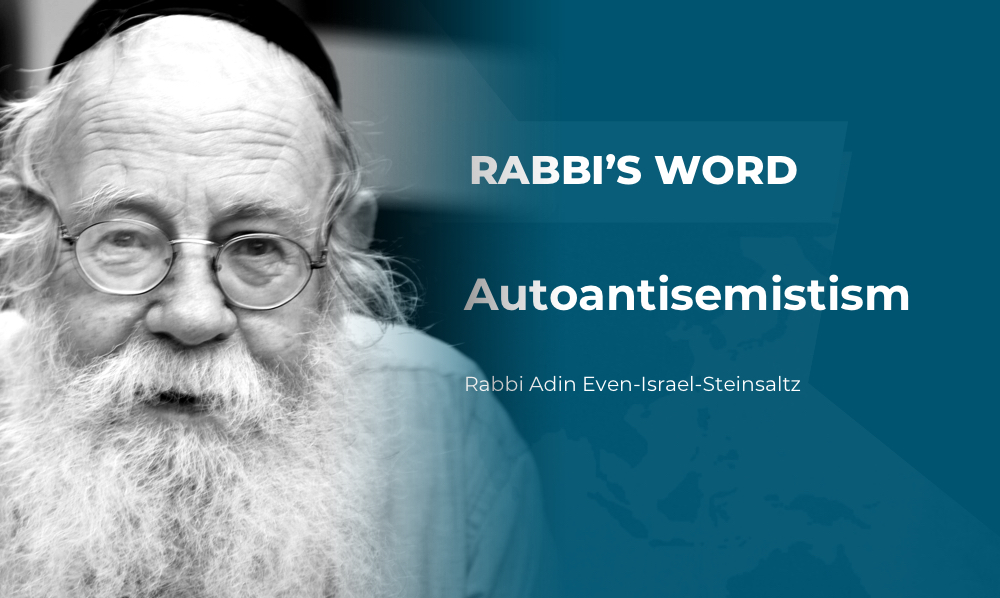
Strangely enough, anti-Semitism and a complete devotion to Judaism have much in common. To grasp this, one does not have to scrape the bottom of the soul in order to find the ambivalent connection between love and hatred. The matter is simply that both anti-Semites and devout Jews agree upon one basic idea – that there is something uniquely significant and important about Jews. For most people, a category of human beings who constitute less than one half of one percent of the population do not deserve to occupy so much attention. Only the Jews and the anti-Semites think that the Jews are so special, so important, that they should be related to accordingly and be thought about, until it becomes almost an obsession. Indeed, the paradoxical fact remains that the most fervent believers in the choseness of the Jewish people (even if without any excess of love) are precisely the most fanatical of the anti-Semites.
The odd connection between anti-Semitism and devout Judaism is one of the explanations for the fairly common phenomenon of Jewish self-hatred, which includes a wide range of nuances, from exaggerated self criticism to fierce anti-Semitic sentiments. Among the psychological derivatives of a deep faith (irrational and often not conscious) in the special quality of Israel as the chosen people, there is a tendency to an excessively severe criticism. What would be considered as normal and even correct for others is inexcusable for the Chosen People. When this self-criticism becomes overly rigorous in its harshness, it makes one forget the primary element that was at its source and it can become aggravated into a sick antipathy – into “autoantisemitism.”
Such self dislike or even hatred is certainly not an unfamiliar feature of society; many suffer from it to some degree or other. But the fact that this is so common among Jews in relation to Judaism, and especially among Jewish intellectuals, would seem to indicate that there are other factors involved. One of them seems to be the Jewish talent for imitation, cultural imitation in particular. This talent, which is an important tool for survival for any weaker element in society, can extend far beyond merely external imitation, beyond pretending to be like the other, and can become a genuine internalization of the values and ways of the other, amounting to a full identification. Indeed, so powerful can such an imitative urge become, that it is often able to function without any responsive reactions from the environment. Even when members of the surrounding society are antagonistic and unreceptive, even then the Jew will often strive to be like them. The imitative drive is quite compulsive and works on every Jew in an alien environment. But it is overwhelming for a Jew who has no Jewish content at all, and who does not even have a notion of what this content consists of. In such a case, the alien identity takes over completely and the person or group remains bereft of any vestige of true identity.
In spite of which obscuration of identity, the Jewishness does not altogether disappear. A certain residue still lingers, at least in the realm of the unconscious. The Jew, who in terms of his awareness, has become an inseparable part of a different culture, is still able to cherish a belief in the special important of the Jewish people. Moreover, this belief can be accompanied by a number of excessive demands. And the combination of these two elements – the alienation from Judaism and the unrealistic significant imparted to Judaism – easily leads to a certain suspicious, hostility, and even hatred.
These antipathetical feelings create the sick aversion that is xenophobia. When they are accompanied by an idea that the stranger, the object of repugnance, is somehow important or possessed of more than ordinary powers, such feelings crystallize into their most poisonous form ̶ anti-Semitism. At the same time, there is something ambivalent about anti-Semitism. The hatred has another side to it, of envy and even admiration. This mixture (in addition to other factors like broader views of life and culture), makes anti-Semites feel somewhat ashamed and apologetic. The only ones who are free of such ambivalence are the Jews. When a Jew experiences a deep aversion to his Jewishness, he does not feel any need to be ashamed of it or to apologize for it. The fact that he is a Jew gives him the right to hate without feeling blameworthy. Only he can be, in heart and soul, an autoantisemite.



